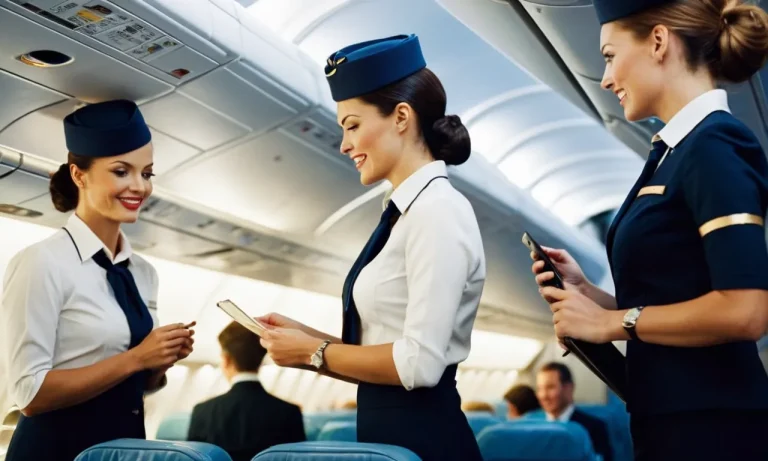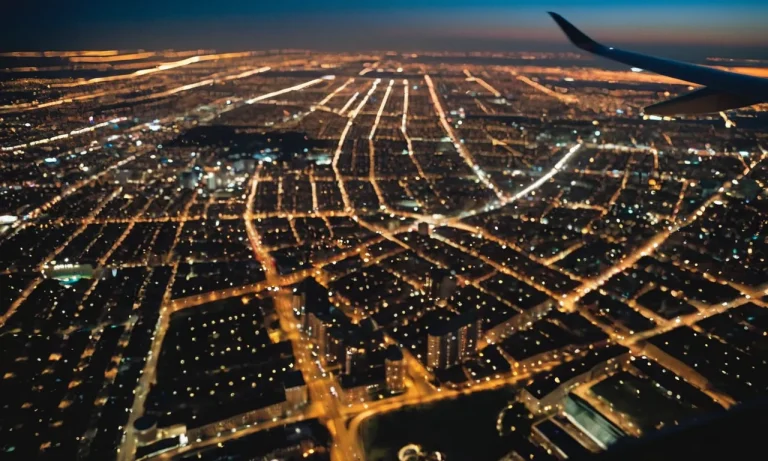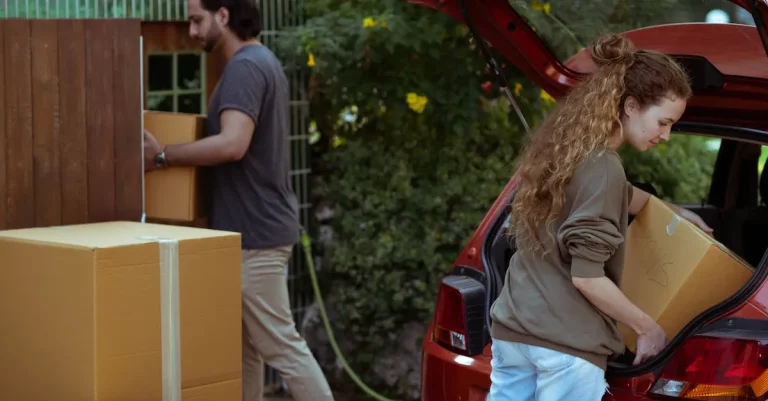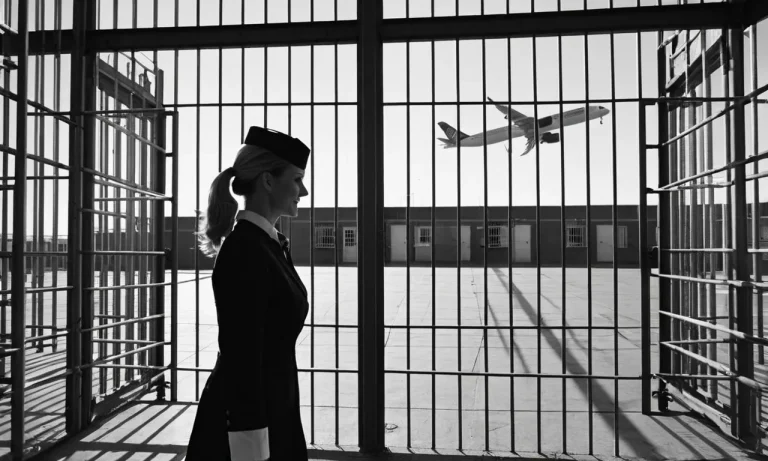Flight delays and cancellations can be incredibly frustrating, especially when you have an important meeting to get to or a timely connection to make.
If your flight gets delayed, is there any chance it could get moved back up to its original departure time?
Let’s take a detailed look at whether airlines can, and will, move a delayed flight back up.
If you’re short on time, here’s a quick answer: airlines can technically move a delayed flight back up to its original departure time, but will rarely do so in practice.
There are many operational factors that make it difficult logistically. Continue reading to learn why.
What Causes Flight Delays in the First Place
Flight delays can be frustrating and disruptive to travel plans. Understanding the underlying causes can help passengers better navigate these situations.
Here are some common reasons for flight delays:
Staffing Issues
One of the leading causes of flight delays is staffing issues. Airlines rely on a complex network of employees to ensure smooth operations.
However, unforeseen circumstances such as sickness, scheduling conflicts, or labor disputes can lead to a shortage of personnel.
When there aren’t enough pilots, flight attendants, or ground staff available, flights may be delayed or even canceled.
Weather Delays
Weather conditions play a significant role in flight delays. Adverse weather, such as heavy rain, snowstorms, or strong winds, can make it unsafe for aircraft to take off or land.
Airlines prioritize passenger safety, so they may delay or divert flights to avoid hazardous weather conditions.
While frustrating, these delays are necessary to ensure the well-being of everyone on board.
Mechanical Problems
Another common cause of flight delays is mechanical issues with the aircraft.
Airlines conduct rigorous maintenance programs to keep their planes in top condition, but malfunctions can still occur.
When a mechanical problem is identified before takeoff, the airline must resolve the issue to guarantee the safety of passengers and crew.
This can involve bringing in specialized technicians or sourcing replacement parts, leading to delays.
Air Traffic Control Delays
Air traffic control (ATC) is responsible for managing the flow of air traffic and maintaining safe distances between aircraft.
Delays can occur when the ATC system becomes overwhelmed due to high air traffic volume, inclement weather, or technical issues.
Controllers may need to space out arrivals and departures, resulting in delays.
Additionally, airspace congestion can occur at busy airports, leading to holding patterns and extended taxi times.
Understanding these common causes of flight delays can help passengers manage their expectations and plan accordingly.
It’s important to remember that airlines prioritize safety above all else and will take necessary measures to ensure a safe journey for everyone on board.
Why Airlines Don’t Usually Move Delayed Flights Back Up
When faced with a delayed flight, passengers often wonder if there is a possibility for the flight to be moved back up in the schedule.
However, in most cases, airlines do not prioritize re-timing delayed flights. There are several reasons for this:
Operational Difficulties with Re-Timing
Re-timing a delayed flight can be a complex process for airlines.
Airports have strict scheduling and slot allocation systems, which means that any changes to flight times need to be approved and coordinated with airport authorities.
Additionally, airlines need to consider the availability of gates, runway slots, and ground handling services.
These operational difficulties make it challenging for airlines to move delayed flights back up in the schedule.
Downstream Effects on Connections and Crews
Another reason why airlines are hesitant to move delayed flights back up is the potential impact on passengers’ connections and crew schedules.
When a flight is delayed, passengers who have connecting flights may miss their connections if the flight is moved up.
This can cause significant inconvenience for passengers and result in additional costs for the airline to rebook them on alternative flights.
Additionally, moving up a delayed flight may disrupt the schedules of the flight crew, leading to potential rest time violations and legal constraints.
Lack of Incentive for Airlines
Airlines are profit-driven businesses, and moving up a delayed flight may not always align with their financial interests.
When flights are delayed, airlines often have to provide compensation to affected passengers, such as meal vouchers or hotel accommodations.
By re-timing the flight, the airline may be required to provide these compensations to a larger number of passengers.
Furthermore, if the delay is due to external factors such as weather conditions or air traffic control, the airline may argue that they are not liable for compensation, further reducing their incentive to move the flight back up.
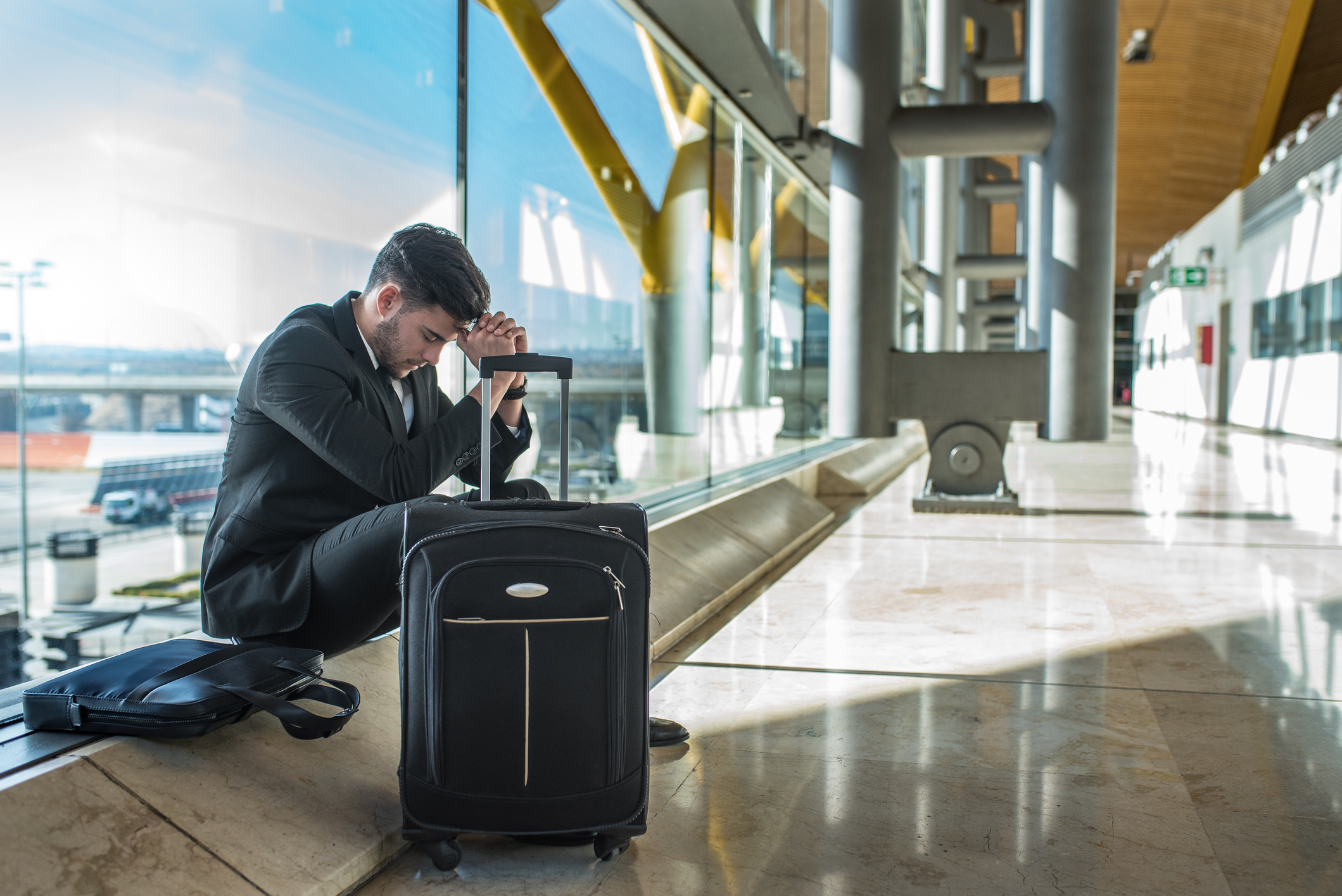
When Delayed Flights Do Get Moved Up
While delayed flights can be frustrating and inconvenient for passengers, there are certain situations where the flight can be moved up.
Here are some scenarios where this might happen:
If the Reason for the Delay is Resolved Quickly
If the reason for the delay, such as a mechanical issue or a crew delay, is resolved quickly, there is a possibility that the flight can be moved up.
Airlines understand the importance of getting passengers to their destinations on time and will make every effort to minimize delays.
In these cases, passengers may be notified of the change in departure time and provided with updated boarding information.
When it Benefits the Airline’s Bottom Line
Another situation where a delayed flight might be moved up is when it benefits the airline’s bottom line.
For example, if the airline has a connecting flight that is also delayed and moving up the delayed flight can help passengers make their connection, the airline may prioritize moving up the delayed flight.
This ensures that passengers reach their final destination without further delays and reduces the number of complaints and compensation claims that the airline may have to handle.
For Elite Status Fliers on Less Full Flights
Elite status fliers, who have achieved a certain level of loyalty with the airline, may have the opportunity to have their delayed flight moved up.
Airlines often prioritize their elite status fliers and may try to accommodate their travel needs as much as possible.
If there are empty seats on an earlier flight, the airline may offer these seats to elite status fliers whose flights have been delayed.
This not only helps the airline fill up empty seats but also rewards their loyal customers with a more convenient travel experience.
Tips for Increasing Your Chances of Getting Moved Up
Be Flexible and Gracious with Gate Agents
When it comes to getting moved up on a delayed flight, being flexible and gracious with gate agents can go a long way.
Remember, they are dealing with frustrated passengers and are doing their best to accommodate everyone. Approach them with a smile and a positive attitude.
Ask politely if there are any available seats in a higher class or if they can consider moving you up. Being kind and understanding may make them more willing to help you.
Consider Volunteer Options
If you’re willing to be flexible with your travel plans, volunteering to give up your seat can increase your chances of getting moved up on a delayed flight.
Airlines often offer incentives, such as travel vouchers or upgrades, to passengers who are willing to take a later flight.
By volunteering, you not only help the airline by freeing up a seat, but you also put yourself in a better position to be considered for an upgrade.
Keep in mind that not all flights may need volunteers, so it’s important to check with the gate agent to see if this option is available.
Leverage Your Frequent Flyer Status
If you’re a frequent flyer with a certain airline, make sure to leverage your frequent flyer status when trying to get moved up on a delayed flight.
Airlines often prioritize their loyal customers and may be more inclined to offer an upgrade or move you to a higher class.
If you have elite status or have accumulated a significant number of miles, mention it to the gate agent. They may be able to find a seat for you in a higher class or offer you other perks.
Remember, there’s no guarantee that you’ll be moved up on a delayed flight. It ultimately depends on the availability of seats and the airline’s policies.
However, by following these tips and approaching the situation with patience and kindness, you may increase your chances of getting a better seat or even an upgrade.
Good luck!
Conclusion
While it is logistically challenging, airlines can technically move a delayed flight back to its original departure time in certain circumstances.
However, this occurs rarely in practice due to the operational difficulties and lack of incentive for airlines to re-time delayed flights.
Your best bet is to stay flexible, be kind to gate agents, and leverage any frequent flyer status you may have.
With realistic expectations, a bit of luck, and some proactive communication, you may just get moved back up after all.


